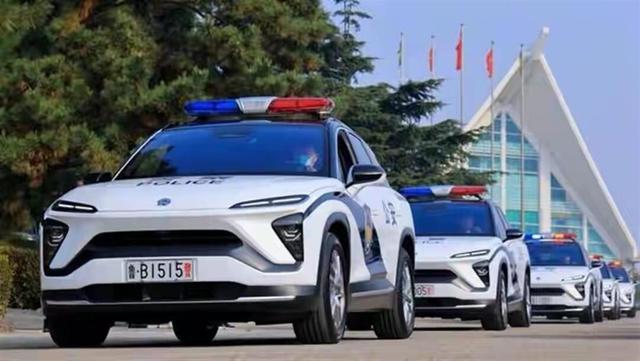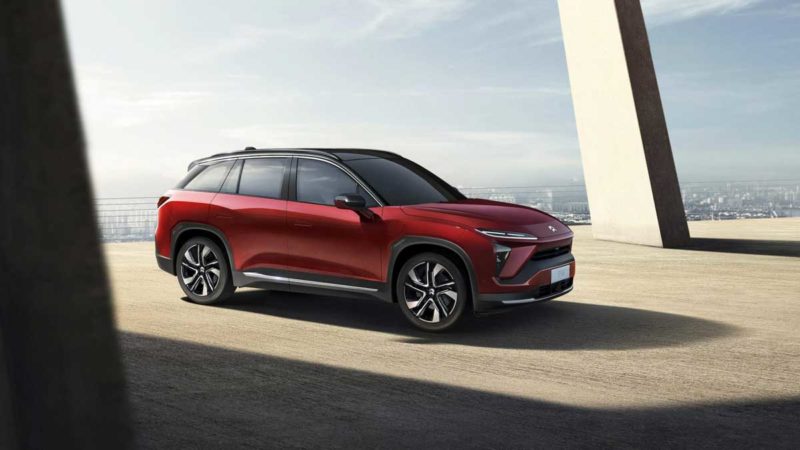Chinese automaker Nio has secured a leg-up over its competition after a local Chinese police department selected eight Nio EVs for its fleet of police cars due to the company’s battery swapping technology.
Nio has made a name for itself not only thanks to its attractive EVs with impressive all-electric range upwards of 600-kilometres – and stretching to 1,000-kilometres with the ET7 – but also the company’s battery swap technology.
And it was specifically Nio’s battery swapping that stood out to the police department in the Laoshan District of Qingdao City in China’s eastern Shandong Province.
According to local Chinese news outlet JiMu News, eight Nio ES6 vehicles have begun operation at the Laoshan District police department, part of a larger fleet of over 1,000 new energy vehicles in operation across Qingdao City’s official vehicles.
According to JiMu News, all newly purchased official vehicles in Qingdao City have been new energy vehicles across the past two years – with the exception of emergency and fire vehicles.

Qingdao City police departments had already highlighted their experience that recharging an electric vehicle could take as long as 40 minutes to be charged to 80%, too long to be effective during normal police operations and long-term patrols.
It was for this reason that the eight Nio ES6 were purchased, making use of the battery swap technology which means a depleted battery can be swapped out for a fully charged battery in around five minutes.
The Nio ES6 boasts an all-electric range of 610-kilometres (NEDC) with a 100kWh battery pack powering acceleration from 0 to 100km/h in 4.7-seconds and maximum power of 544ps.
JiMu News quotes a local official in charge of the Public Vehicle Management Office of the Qingdao Municipal Government Affairs Service Center who also added that the decision to purchase eight Nio ES6 EVs was the result of input from the community.
The local Qingdao City government also refuted claims that purchasing the Nio ES6 for use as a public vehicle went against local procurement standards, explaining that by purchasing the ES6 with the Battery as a Service (BaaS) plan meant the upfront cost of the vehicle was under the procurement tender limits.
Joshua S. Hill is a Melbourne-based journalist who has been writing about climate change, clean technology, and electric vehicles for over 15 years. He has been reporting on electric vehicles and clean technologies for Renew Economy and The Driven since 2012. His preferred mode of transport is his feet.

